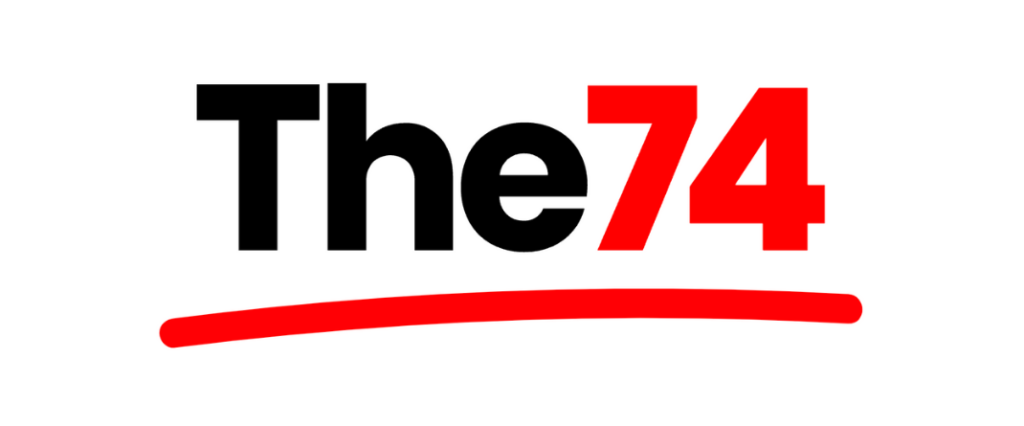Personalized Learning
High dosage tutoring – defined as tutoring embedded during the school schedule that ensures students work consistently on individualized instructional content with their tutor throughout the school year – is among the most effective and cost-effective learning interventions studied to date.
However, schools still face barriers to bringing high dosage tutoring to all students who could benefit. We work in partnership with school districts to understand whether and how we can scale high dosage tutoring programs to reach tens of thousands more students without compromising effectiveness.
The COVID-19 pandemic has exacerbated long-standing disparities in educational performance and attainment along race and class lines. Without dramatic intervention, we risk permanently reversing decades of steady, incremental progress in improving student outcomes. More importantly, we risk shortchanging students–primarily Black and low-income students–the opportunity to learn for decades to come. Despite the scale and gravity of the challenge, we know that there is an effective solution to address learning loss: high dosage tutoring. Research by the Education Lab, in partnership with CPS and Saga Education, shows that when done well, this approach can double or even triple the rate of student learning.
The Education Lab, in partnership with MDRC and Saga Education, is helping districts scale and rigorously study high dosage tutoring supports so that more students might benefit.
Our evaluation of Saga Education found that students who participated in Saga’s high dosage tutoring program for a single year gained 1-2.5 years of additional learning compared to students who did not.
At least 30 minutes of intensive, individualized instruction three or more days per week is one of the most effective learning interventions studied to date.
Personalized Learning Initiative
The Personalized Learning Initiative is a moonshot to overcome pandemic learning loss and aims to bring high-dosage tutoring to students nationwide.
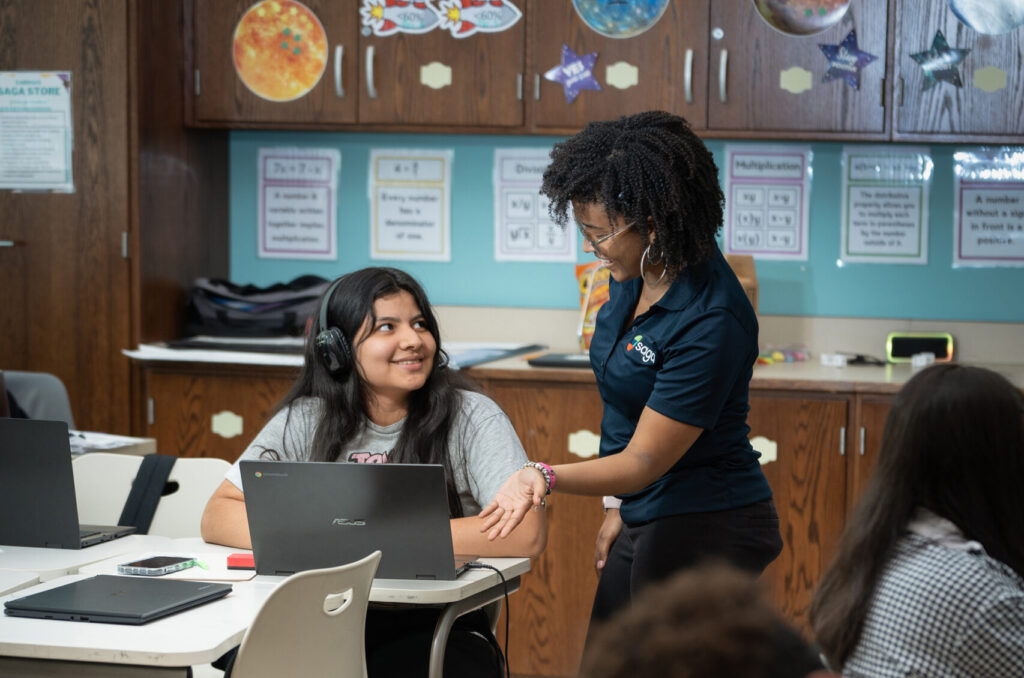
Personalized Learning Initiative: Tutor Corps Evaluation
The University of Chicago Education Lab is partnering with Chicago Public Schools (CPS) to scale personalized tutoring in the wake of the pandemic.
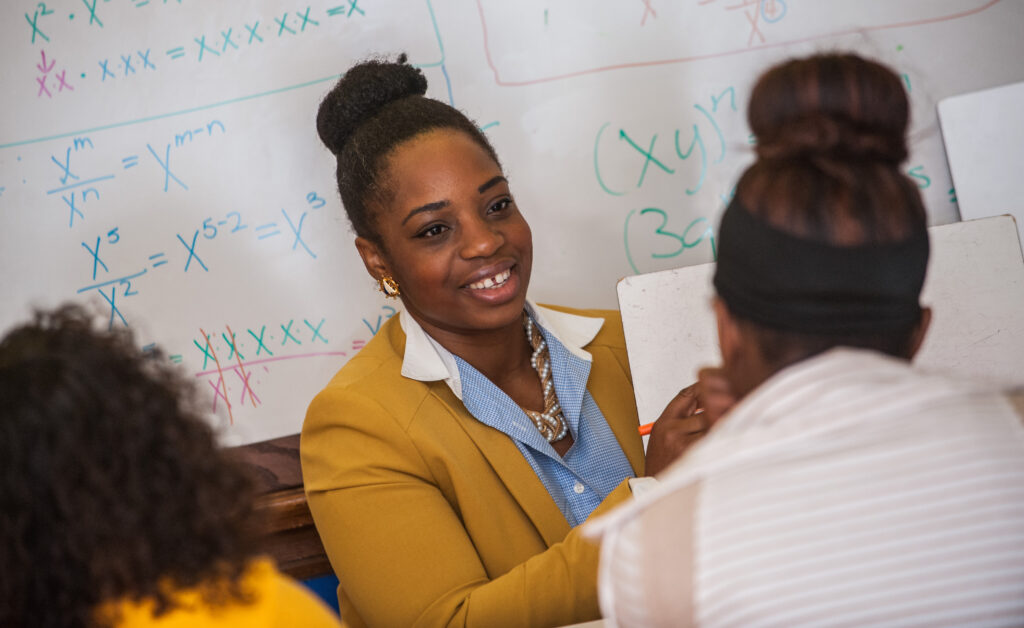
Coaching with Computer-Assisted Learning (CAL)
The Education Lab partnered with Chicago Public Schools (CPS) to pilot the Coaching with CAL program, which offers high-dosage tutoring to students through education technology platforms.

Saga Online
The Education Lab, in partnership with Chicago Public Schools (CPS) and Saga Education, evaluated a pilot of a fully-remote, high-dosage tutoring math intervention for high school students enrolled in CPS Options schools.
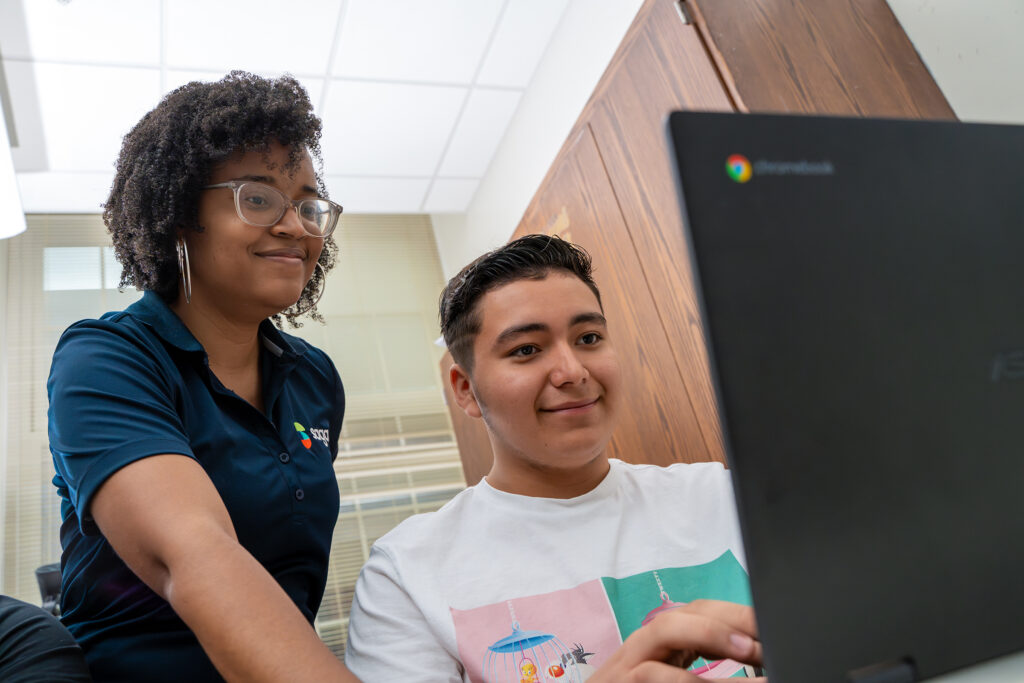
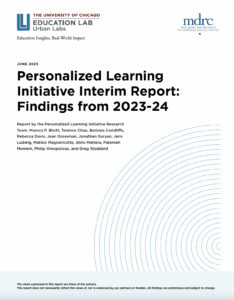
Personalized Learning Initiative Interim Report: Findings from 2023-24
The latest report by the PLI research team shows positive impacts from many types of tutoring–both more and less expensive tutoring models–across the country. These interim findings ought to encourage the field to stay the course in implementing high dosage tutoring, while improving dosage to yield greater learning gains for students.
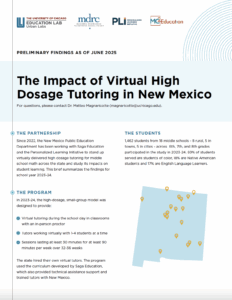
The Impact of Virtual High Dosage Tutoring in New Mexico
Since 2022, the New Mexico Public Education Department has been working with Saga Education and the Personalized Learning Initiative to stand up virtually delivered high dosage tutoring for middle school math across the state and study its impacts on student learning. This brief summarizes the findings for school year 2023-24.
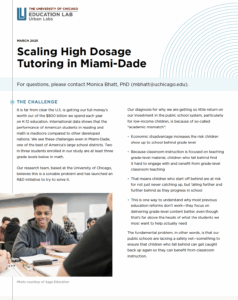
Scaling High Dosage Tutoring in Miami-Dade
In the 2023–2024 school year, the Education Lab launched a partnership with Miami-Dade County Public Schools to deliver in-school, intensive math tutoring. This brief highlights preliminary findings from the first year of implementation.
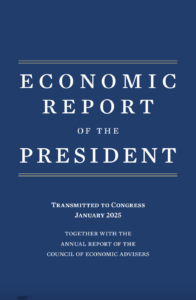
2025 Economic Report of the President
This report cites results from the Education Lab’s study of a high-dosage tutoring model–what we call “Saga Technology”–which found that substituting some tutor time with educational technology can reduce costs by one-third and halve the number of tutors needed without compromising effectiveness.
Latest Updates
A Promising Start for Personalized Learning in Miami-Dade
Griffin Catalyst highlights its three-year gift to the Education Lab to bring an innovative, high-dosage, math tutoring initiative to middle schools in Miami-Dade County to support and accelerate student learning in the wake of the COVID-19 pandemic. Initial results from the program are promising, suggesting that this approach can help tackle learning loss and enable students to catch up to grade level.
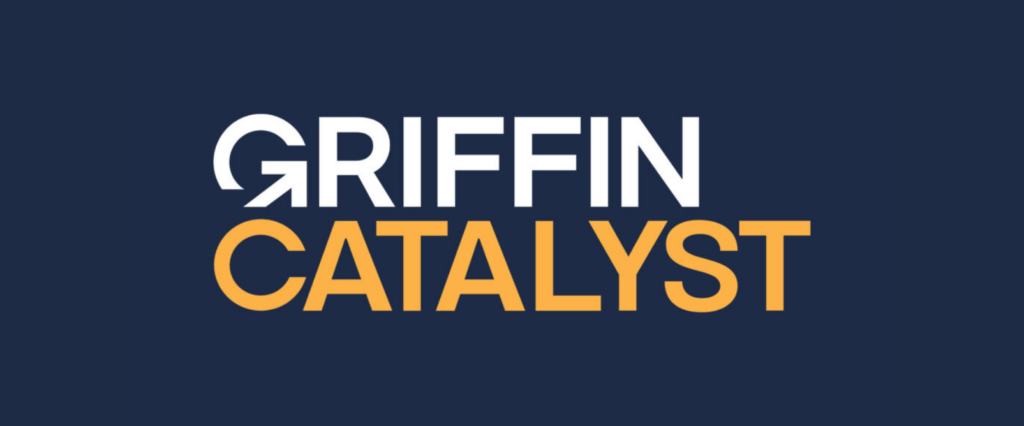
Why tutoring is a logistics problem worth solving
The National Student Support Accelerator’s (NSSA) Susanna Loeb and the Education Lab’s Monica Bhatt highlight the ways districts can stay the course on using high-dosage tutoring as a research-backed lever for strengthening teaching and learning.

Months After Deep Cuts, Education Researchers See Reason for Cautious Optimism
In a recent piece from The 74 Media’s Greg Toppo, Education Lab Senior Research Director Monica Bhatt discusses why continued investment in education R&D matters: To drive better outcomes for students and to strengthen America’s global competitiveness.
